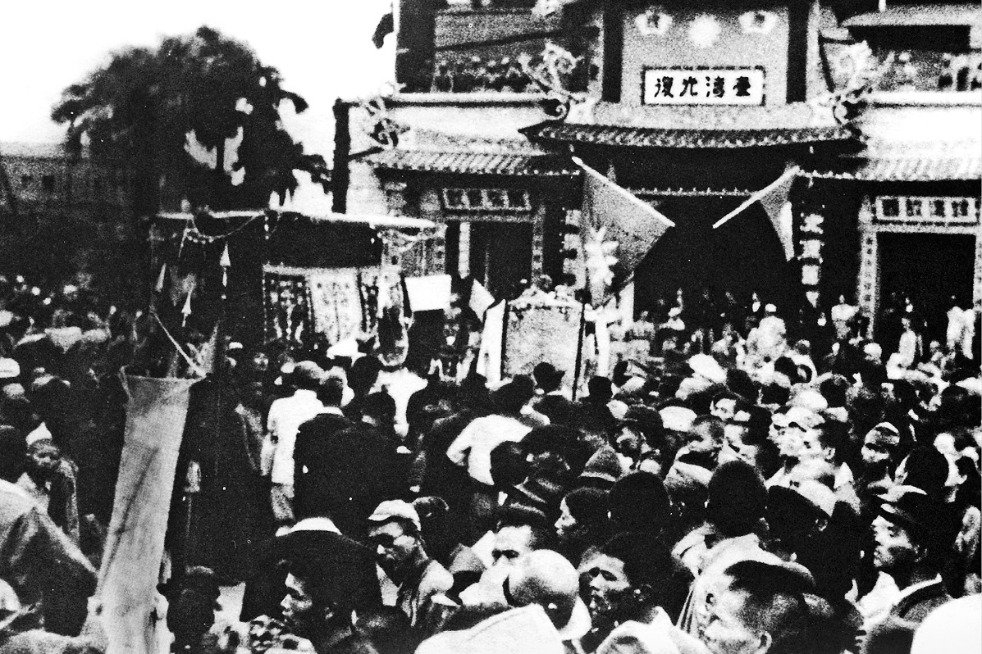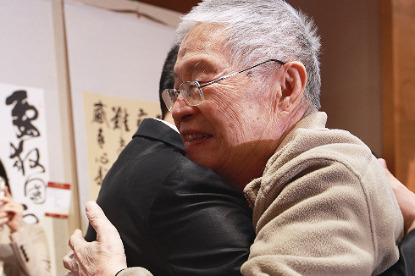Hong Kong revving up the talent engine

Hong Kong has embarked on sweeping reforms to make itself a global education hub by attracting diverse professionals centered on technology innovation. As Li Lei reports, the push includes a greater nonlocal student intake and deeper academia-industry integration.

The Hong Kong Special Administrative Region is going all-out to bridge the innovation talent gap with an ambitious, supply-side educational revolution to transform the city's world-class university system into a direct pipeline for high-tech professionals it desperately needs to compete on the international stage.
The wide-ranging overhaul, laid out by Hong Kong Chief Executive John Lee Ka-chiu in his fourth Policy Address, has been greeted with resounding approval from technology leaders, who call it a critical step toward bridging a yawning manpower chasm and securing the special administrative region's future as a world innovation leader.
The multipronged strategy addresses the problem from every angle — dramatically raising the intake of international students, plugging the chronic student housing shortage, forging deeper ties between academia and industry, and launching a global marketing blitz to sell Hong Kong as a premier education destination.
The comprehensive approach signals a fundamental shift from merely producing graduates to strategically cultivating a specific, market-ready talent pool capable of powering strategic sectors.
Leonard Chan Tik-yuen, founding chairman of the Hong Kong Innovative Technology Development Association, is adamant that a diverse talent pool underpins innovation.
He hails the SAR government's new path, saying it "closely mirrors the innovation objectives" of the nation's 14th Five-Year Plan (2021-25) and strengthens the city's innovation capacity by introducing diverse talent.
Manpower shortfall
The urgency of the reforms is underscored by stark projections from the Labour and Welfare Bureau that the demand for professionals in the inno-tech sector would surge from 60,200 in 2023 to 96,400 by 2028, and surpass 100,000 in five years. By 2028, Hong Kong could face a severe manpower shortfall of 18,000 to 23,000 professionals in the sector.
The most critical shortages are likely to span the cutting edge of technology, including jobs like project managers, data analysts and specialists in artificial intelligence, new energy technology, microelectronics, and pharmaceuticals.
Chan says that the current setup has failed to meet demand. "Less than 10 percent of our graduates in related courses are able to meet the needs of tech firms," he says, pointing to a critical mismatch between classroom learning and real-world industry expectations.
A cornerstone of the government's new initiatives is a radical expansion of the intake of nonlocal students. The admission ceiling for self-financing nonlocal students pursuing bachelor's degrees at public universities will go up to 50 percent of the funded local student places beginning with the 2026-27 academic year.
This marks a dramatic acceleration from the longstanding cap of 20 percent that was recently doubled to 40 percent for the 2024-25 academic year. To fuel research output, the overenrollment ceiling for funded research postgraduate programs will also be raised — from 100 percent to 120 percent.
Recognizing the need for more student dormitories, the SAR government will ramp up supply by expanding the eligibility criteria under the "Hostels in the City" program by incentivizing the conversion of underused commercial buildings into student housing.
The Policy Address provides for new sites to be earmarked specifically for building student hostels this year.
Cindy Chow Lok Mei-ki, executive director and CEO of the Alibaba Hong Kong Entrepreneurs Fund, says alleviating the housing pressure is key to keeping young entrepreneurs in the city.
"This initiative offers more than just a bed. It alleviates a significant mental burden, enabling them to direct their precious capital and energy toward product development and market expansion," she says. By easing the financial strain, the policy will prod more promising graduates to build up their future in the SAR.
Market alignment
Another core component of the reforms is a concerted push to align education more closely with the market's practical needs.
The government has formally designated Hong Kong Metropolitan University and Saint Francis University as "universities of applied sciences", creating a clear, respected pathway for students inclined toward hands-on, vocational learning. These institutions will be steered toward partnerships with leading enterprises in Guangdong province, which is renowned for its dense ecosystem of tech startups and advanced manufacturing.
Hong Kong and the Chinese mainland will promote mutual recognition of subdegree qualifications, facilitating seamless cross-boundary employment and study across the Guangdong-Hong Kong-Macao Greater Bay Area.
Chan applauds the drive for greater academia-industry integration, saying that traditional internships are no longer sufficient, but that a more immersive approach is needed. "We need to make commercial projects a critical part of degree programs to teach students hands-on knowledge and produce more readily employable graduates," he says.
Chow highlights the immense potential for commercializing Hong Kong's world-class research, particularly in fields like AI and biotech, by leveraging the mainland's manufacturing and market scale. "The Greater Bay Area initiative derives its core strength from enabling resource complementarity and market integration under the 'one country, two systems' framework."
Chan agrees, stressing that Hong Kong's unique competitive edge in the Greater Bay Area lies not necessarily in its absolute technological prowess, but in its unparalleled ability to commercialize such expertise. He calls Hong Kong a place where an outstanding technological concept can transform into a startup in a few months and grow into a listed company within a few years. "Such a speed of transitioning from technology to capital is exceptionally rare on a global scale."
Hong Kong's reforms to create more suitable talent are backed by a concerted marketing push to capitalize on its formidable academic reputation.
The latest Times Higher Education World University Rankings have reinforced Hong Kong's prestige by placing six of the city's eight public universities among the world's top 200 institutions of higher learning, and five of them in the top 100, led by the University of Hong Kong, in 33rd place.
A newly established Task Force on Study in Hong Kong will coordinate major international campaigns under the theme "Hong Kong: Your World-class Campus".
Bolstered by a HK$40 million ($5.15 million) grant, public universities will step up efforts to attract international and mainland students, and organize summer study tours to showcase Hong Kong's offers to secondary school students.
Chow says such a publicity campaign is essential to burnish the SAR's international appeal and alleviate the manpower demands ignited by massive upcoming projects like the San Tin Technopole — a cornerstone of the Northern Metropolis development in the northern New Territories.
While the Policy Address provides a powerful foundation, tech leaders agree that its ultimate success hinges on building a complete, supportive entrepreneurial ecosystem around it.
Chan calls for three key mechanisms to be implemented — a "failure buffer" to provide safety nets and retraining for entrepreneurs; an improved angel-investment platform to better connect capital with promising projects; and streamlined cross-boundary channels within the Greater Bay Area to facilitate the free flow of resources.
He also favors a fundamental cultural shift. "We need to view failure as a learning cost rather than a stigma," he says, suggesting that combining a newfound tolerance for risk with strong risk-management capabilities is vital to cultivating job-creating entrepreneurs and transforming Hong Kong into a true startup paradise.
Such a proactive, ecosystem-building approach is being adopted by key players. Chow says the Alibaba Entrepreneurs Fund will actively scout for promising young teams with an entrepreneurial spirit within university laboratories and innovation hubs, rather than waiting for formal proposals.
"The fund positions itself as a 'nurturer of seedlings'," she explains. Once a promising team is identified, the fund will provide "precise empowerment" through its venture mentor ecosystem, helping teams to transition themselves from technical to commercial thinking.
The Alibaba-affiliated network will link up these teams with corporate partners, market validation opportunities, and the vast innovation resources of the Greater Bay Area.





































